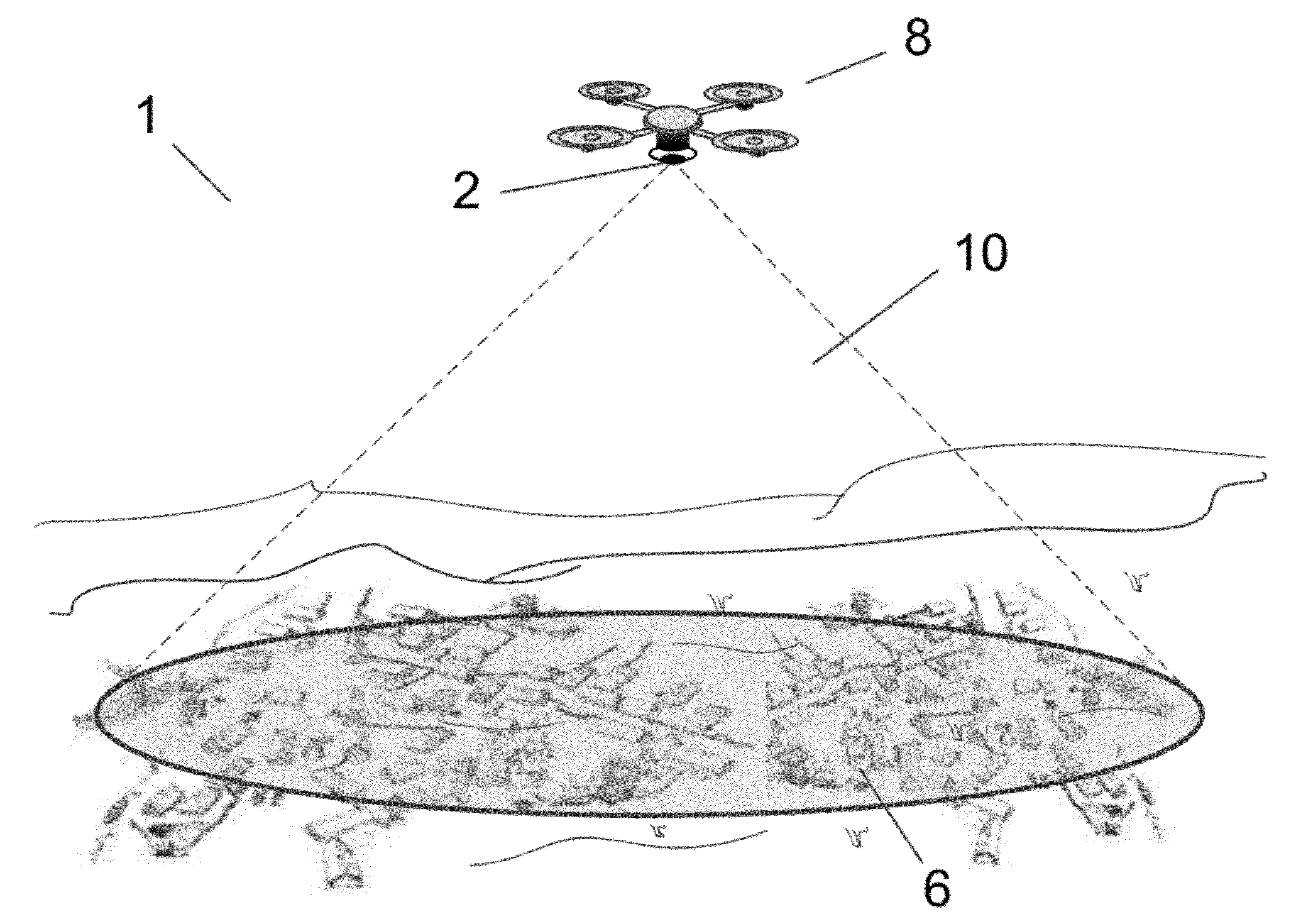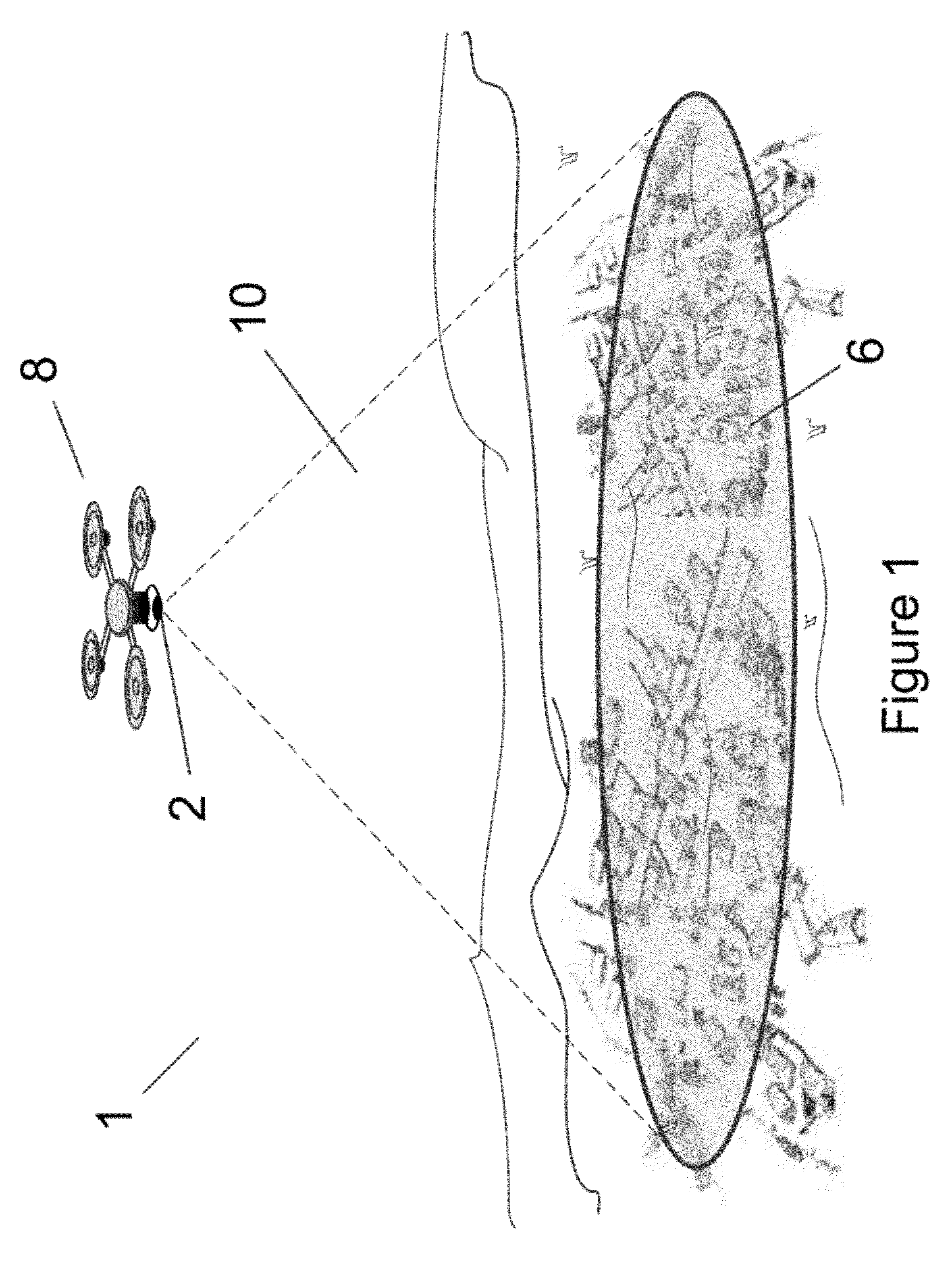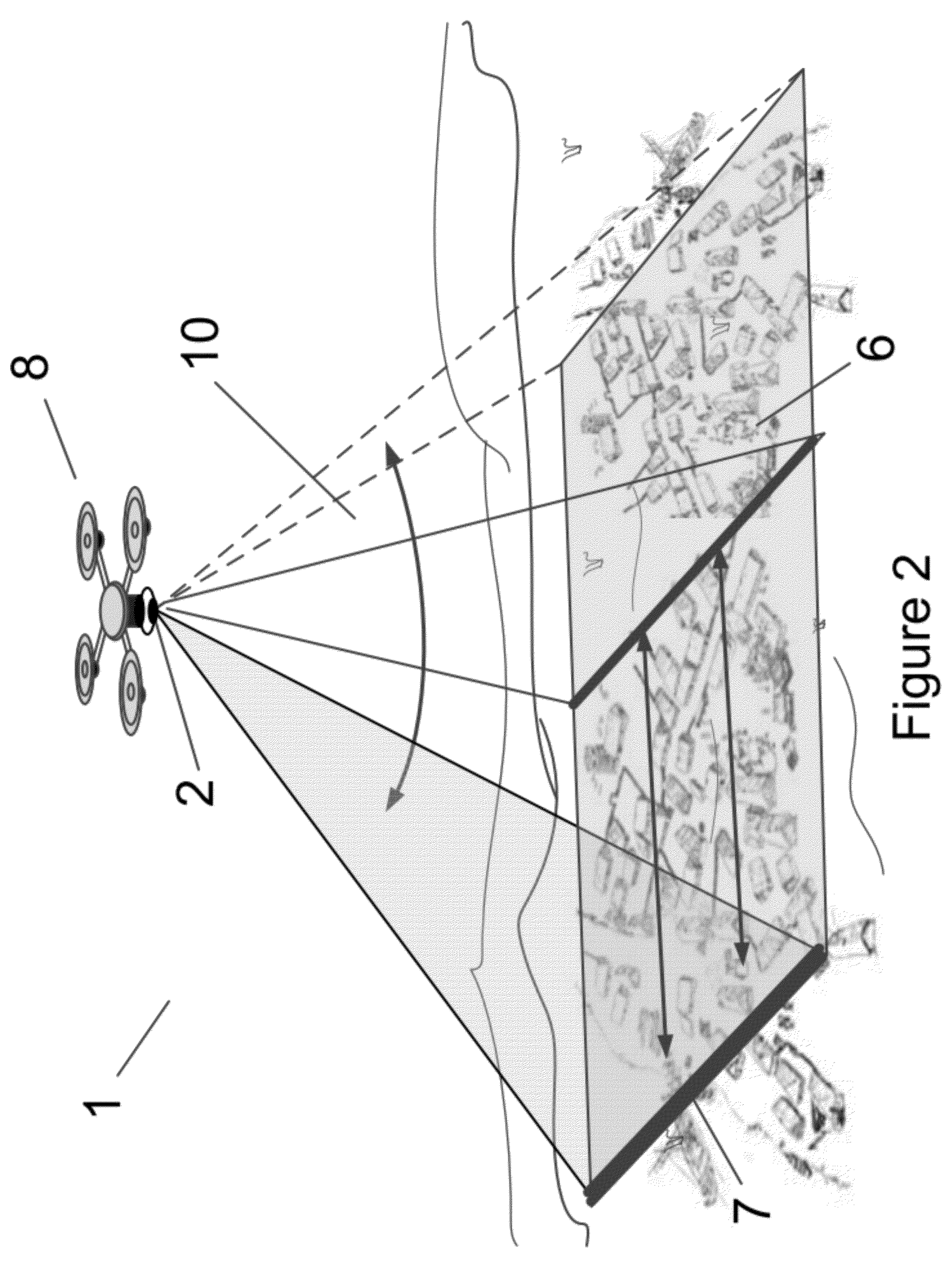Aerially Deployed Illumination System
a technology of illumination system and illumination system, which is applied in the direction of lighting support devices, landing aids, instruments, etc., can solve the problems of uav's generally having a relatively small payload capacity, and affecting the performance of uav's
- Summary
- Abstract
- Description
- Claims
- Application Information
AI Technical Summary
Benefits of technology
Problems solved by technology
Method used
Image
Examples
Embodiment Construction
[0073]As mentioned above, generally, both gas and electric powered UAV's have a fairly low payload capacity. Thus, it is important that the UAV-deployed illumination system be lightweight and consume a low amount of power. However, it is equally important to provide a sufficient amount of illumination on a target for proper viewing thereof. Currently, no conventional aerially deployed methods of illumination provide these two characteristics, namely, low mass and high illumination power.
[0074]To cure these deficiencies, and provide an aerially deployed illumination means which can be disposed on a small UAV and is capable of illuminating a relatively large area, the present inventors have developed an aerially deployed illumination system comprised of one or more unmanned aerial vehicles (UAV's), each of same having an illumination system disposed thereon. In particular, as illustrated in FIG. 15, each UAV 1 is comprised of a central microprocessor 18; a wireless communication means...
PUM
 Login to View More
Login to View More Abstract
Description
Claims
Application Information
 Login to View More
Login to View More - R&D
- Intellectual Property
- Life Sciences
- Materials
- Tech Scout
- Unparalleled Data Quality
- Higher Quality Content
- 60% Fewer Hallucinations
Browse by: Latest US Patents, China's latest patents, Technical Efficacy Thesaurus, Application Domain, Technology Topic, Popular Technical Reports.
© 2025 PatSnap. All rights reserved.Legal|Privacy policy|Modern Slavery Act Transparency Statement|Sitemap|About US| Contact US: help@patsnap.com



